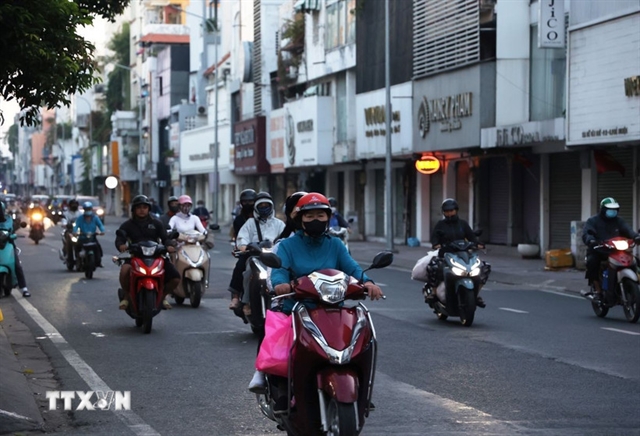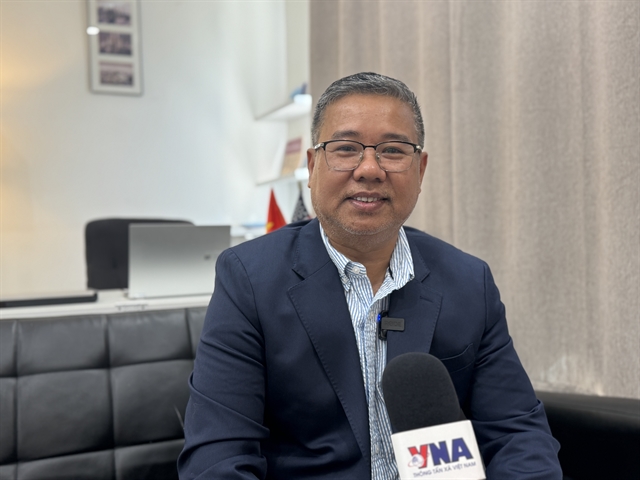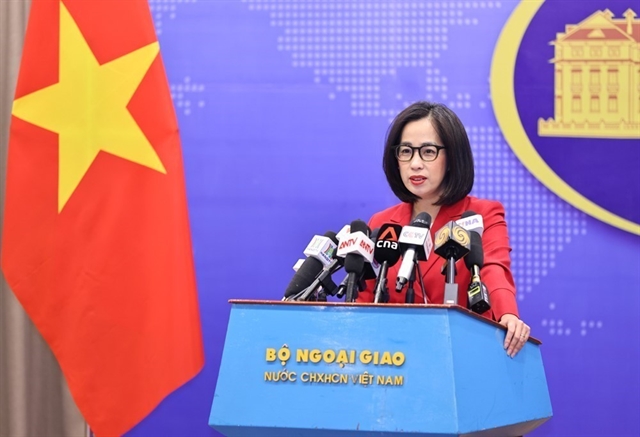 Environment
Environment

Conflict of interest in the exploitation, use of water resources and the protection of water quality are on the rise and represented in various forms such as conflict between development policy and preserving living environment, during project n implementation and development, exploitation of natural resources and water resources, conflicts of claim for damages triggered by pollution, environmental degradation, an expert said.
 |
| Waste water from the Triều Khúc plastic recycling village in Hà Nội’s Tân Triều District is discharged directly into ponds and rivers, causing serious pollution. — VNA/VNS Phoot Minh Nghĩa |
HÀ NỘI — Water resources have become a source of increasing conflict, highlighting issues of unsustainable exploitation and environmental degradation, experts say.
The conflicts are at several levels – between development policy and preserving the environment, damage claims over, and access to water for daily life and production.
Nguyễn Văn Phương of the Hà Nội Law College said at a conference organised the Việt Nam Association for Conservation of Nature and Environment in Hà Nội on Wednesday that conflicts also resulted from unclear definition of the ownership and the right to use water sources.
He also blamed State agencies for failing to take effective measures to prevent conflicts.
Nguyễn Bỉnh Thìn, an expert from the Ministry of Agriculture and Rural Development (MARD), said overlapping management of water sources were also a problem.
The agriculture ministry manages dykes and culverts in a protected area, while the transport ministry dredges and builds embankments to facilitate transportation in canals, and builds bridges over rivers.
The exploitation of sand from water bodies is authorised by different administrative levels, making it difficult to stop the destruction that this activity is causing.
The Ministry of Natural Resources and Environment is in charge of water management of a river and its basin, but in fact, the planning, construction and management of a hydropower plant is done by the Ministry of Industry and Trade.
The discharge of wastewater is managed by the environment ministry, but most domestic wastewater, agricultural and part of industrial effluents is discharged into the irrigation system managed by the agriculture ministry. So either side cannot act effectively to prevent the pollution or rivers.
Phương said that conflicts of interest that arise between State agencies focused on development and people who want their living environment preserved, like farmers whose livelihoods depend on water resources, were difficult to solve.
Authorities of the central province of Quảng Nam, for instance, wanted to set up a large scale shrimp breeding region, which requires brackish water, but locals were afraid that this would affect their water source and even cause landslides.
Over 300 households protested and pressurised the local government to cancel the project.
In Quảng Ninh Province, in the 2005-10 period, the area of brackish forest educed by 200 hectares while that of industrial land increased by 300 hectares. The province is facing great challenges in balancing coal mining, environmental protection and tourism development, Phương said.
A project to “improve the landscape” and promote urban development along the Đồng Nai River in 2015 met with severe criticism from local people, leading experts in the country and the public at large.
According to the Vietnam Rivers Network, a domestic NGO, up to 96 per cent of the respondents in a survey objected to the project and wanted it canceled.
The project was eventually suspended after violations as well as the environmental risks were exposed, although no official conclusion was forthcoming from the authorities.
On July 18 this year, the Government Office announced a directive from Deputy Prime Minister Trịnh Đình Dũng that asked the environment ministry to commission a study of opinions from relevant ministries and a re-evaluate its environmental impact assessment before the project is continued.
Participants at Wednesday’s conference agreed that conflicts in the exploitation and use of water sources can cause instability and affect the environmental security of the country and the region. It can also give rise to social conflicts, they said.
Clear laws needed
Environmental experts said at the conference that laws play a very important role in preventing and resolving conflicts over the exploitation and use of water resources.
If the rules are not clear and comprehensive, they would generate conflicts by themselves, particularly those relating to the ownership and the right to use of water resources in the same basin, as well as between different entities on a water body, they said.
For example, provisions of the law empower the community and local people, but also give too many rights and advantages to the government and regulators, they noted.
In order to effectively address the conflicts, there must be a unification of State management, establishment of proper control mechanisms, and strict punishment for violations, they stressed.
Agriculture ministry’s official Thìn said that water resources management should be based on three pillars: the development of water resources, management of water resource and database management.
‘Unlawful co-operation’
On the legal aspects, Phương of Hà Nội Law College said that it was necessary to improve the environmental law in general and water resources law in particular.
The establishment of a number of external control mechanisms to avoid "unlawful co-operation (among project stakeholders)" that creates conflict was also a must, he said.
Like others, he also stressed the need for strict punishment of environmental law violations so that they act as a deterrence and prevent recurrences.
On conflicts over the exploitation of water resources and for preventing water disasters on trans-boundary rivers, Assoc. Prof. Lê Đức Nam, Permanent Vice Chairman cum Secretary General of Vietnam Irrigation Association, suggested that they should be dealt through diplomatic channels or bilateral co-operation mechanisms.
Another option is to take the support of international organisations to establish new management boards for the Red, Sê San and Sêrêpok rivers, he said.
He also stressed the need to unify the management of environmental monitoring systems in riparian countries and improving the legal system for environmental protection in river basins.
This should happen in tandem with the raising of public awareness of environmental protection laws among the people of all concerned countries, he said
Trần Văn Miều, head of Việt Nam Association for Conservation of Nature and Environment’s Communication Division, said communities living in rural and urban areas play an important role in protecting water resources by monitoring their exploitation.
He proposed that the Fatherland Fronts in all localities are assigned to represent locals in supervising local water resources. — VNS




